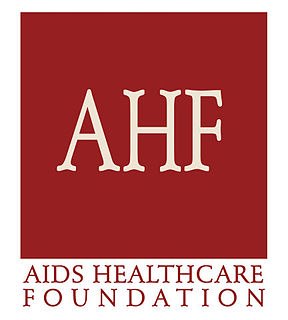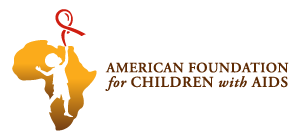
HIV/AIDS originated in Africa in the early 20th century and is a major public health concern and cause of death in many African countries. AIDS rates vary dramatically although the majority of cases are concentrated in Southern Africa. Although the continent is home to about 15.2 percent of the world's population, more than two-thirds of the total infected worldwide – some 35 million people – were Africans, of whom 15 million have already died. Sub-Saharan Africa alone accounted for an estimated 69 percent of all people living with HIV and 70 percent of all AIDS deaths in 2011. In the countries of sub-Saharan Africa most affected, AIDS has raised death rates and lowered life expectancy among adults between the ages of 20 and 49 by about twenty years. Furthermore, the life expectancy in many parts of Africa is declining, largely as a result of the HIV/AIDS epidemic with life-expectancy in some countries reaching as low as thirty-nine years.

The Elizabeth Glaser Pediatric AIDS Foundation (EGPAF) is a nonprofit organization dedicated to preventing pediatric HIV infection and eliminating pediatric AIDS through research, advocacy, and prevention and treatment programs. Founded in 1988, the organization works in 12 countries around the world.
Hospice Palliative Care Ontario (HPCO) is an organization whose members provide end-of-life palliative care to terminal patients in the province of Ontario, Canada. It is the result of an April 2011 merger of the Hospice Association of Ontario (HOA) and the Ontario Palliative Care Association (OPCA). It is one of twelve primary care practitioner units participating in the development of advance care planning in Canada led by the Canadian Hospice Palliative Care Association and partly funded by the Canadian Institutes of Health Research.

AIDS Healthcare Foundation (AHF) is a Los Angeles-based 501(c)(3) nonprofit organization founded in 1987 to provide medical care for individuals living with or affected by HIV/AIDS.

Ira Robert Byock is an American physician, author, and advocate for palliative care. He is founder and chief medical officer of the Providence St. Joseph Health Institute for Human Caring in Torrance, California, and holds appointments as active emeritus professor of medicine and professor of community health and family medicine at the Geisel School of Medicine at Dartmouth College. He was director of palliative medicine at Dartmouth–Hitchcock Medical Center, from 2003–14, and associate director for patient and family-centered care at the affiliated Norris-Cotton Cancer Center.
Blood: Water Mission is a grassroots organization that empowers communities to work together against the HIV/AIDS and water crises in Africa.

The Elton John AIDS Foundation (EJAF) is a nonprofit organization, established by rock musician Sir Elton John – in 1992 in the United States and 1993 in the United Kingdom – to support innovative HIV prevention, education programs, direct care and support services to people living with HIV.
FXB International, also known as Association François-Xavier Bagnoud, is an international development organization aimed at providing support for communities affected by AIDS and poverty. The organization was founded in 1989 by Albina du Boisrouvray.
Hospice care is a type of health care that focuses on the palliation of a terminally ill patient's pain and symptoms and attending to their emotional and spiritual needs at the end of life. Hospice care prioritizes comfort and quality of life by reducing pain and suffering. Hospice care provides an alternative to therapies focused on life-prolonging measures that may be arduous, likely to cause more symptoms, or are not aligned with a person's goals.
The Catholic Church is a major provider of medical care to HIV/AIDS patients. Much of its work takes place in developing countries, although it has also had a presence in the global north. Its opposition to condoms, despite their effectiveness in preventing the spread of HIV, has invited criticism from public health officials and anti-AIDS activists.

The American Foundation for Children with AIDS (AFCA) is a non-profit organization that helps children in sub-Saharan Africa, as well as their guardians, who are HIV positive or who have contracted AIDS and lack access to appropriate medical care. Sub-Saharan Africa has been most affected by the HIV/AIDS epidemic, given that of all new HIV infections in the world, those in sub-Saharan Africa account for more than two-thirds of that number, as of 2008. In helping to fight the battle against HIV/AIDS in sub-Saharan Africa, AFCA provides critical antiretroviral medicine and other related medications, medical equipment and supplies, sustainable food solutions for families and institutions helping orphans, emergency supplies needed by the institutions in AFCA's targeted areas, as well as critical support for the prevention of HIV/AIDS, which included training of personnel. Currently, AFCA collaborates with twenty-eight partners in the Democratic Republic of the Congo, Kenya, Malawi, Uganda, and Zimbabwe.
The Bigshoes Foundation is a non-governmental organisation based in Johannesburg, which serves the needs of children in South Africa affected by HIV/AIDS. Bigshoes operates three children's clinics weekly at the Memorial Institute for Child Health and the Baragwanath Hospital in Soweto, and also has active sites in Cape Town and Durban
The Stephen Lewis Foundation is a non-governmental organization that assists mostly AIDS- and HIV-related grassroots projects in Africa.

The Ministry of Healthcare of Ukraine is the main healthcare body in the system of central government. It is based on former Ministries of Healthcare.

Casey House is a hospital in Toronto, Ontario, Canada that specializes in HIV/AIDS care and also provides home care and outreach programs. It is located in the downtown area, at the corner of Jarvis and Isabella streets. When it was founded in 1988, by a tenacious group of volunteers and renowned journalist and activist, it was the first specialized facility of its kind in Canada. It is named after Casey Frayne, whose mother June Callwood was one of the principal volunteers whose efforts brought about the founding of the hospital. 1 in 120 adult Torontonians is HIV-positive.
African Palliative Care Association (APCA) is a pan-African non-governmental organization (NGO) working to promote and support the integration of palliative care into health systems across Africa. APCA has appeared on the BBC World Service, The Guardian and across regional and national African press advocating for better palliative care provision.

Stephen Robert Connor is a licensed clinical health psychologist, researcher, author, and palliative care consultant. He is the executive director of the Worldwide Hospice Palliative Care Alliance (WHPCA), formerly called the Worldwide Palliative Care Alliance (WPCA). From 1998 to 2008 he served as Vice President of Research and Development at the National Hospice and Palliative Care Organization (NHPCO). He has promoted global initiatives for hospice and end-of-life care programs through the World Health Assembly. He has also addressed the UN General Assembly on the need for greater pain management in palliative care.
Lucy Finch is a palliative nurse who has worked in several African countries and founded a hospice in Malawi – Ndi Moyo – "the place giving life".
The Worldwide Hospice Palliative Care Alliance or WHPCA is an international non-governmental organization based in the United Kingdom. In official relations with the World Health Organization (WHO), the WHPCA works in conjunction with over 200 regional institutions and national partners for the global development of palliative care and advancement of pain relief. It advocates for changes in public policy on accessibility of pain relief in end-of-life care and integration of palliative care into national health agendas. In 2014 it released the Global Atlas of Palliative Care at the End of Life in a joint publication with the WHO.








